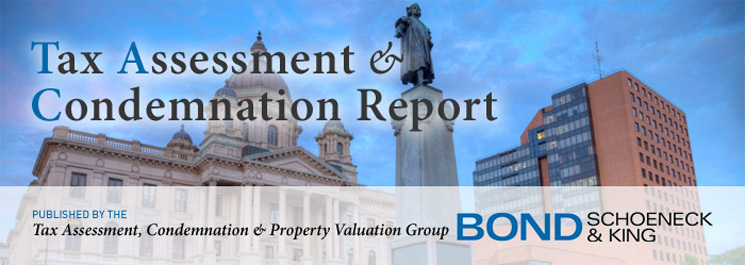
Recently there has been increasing debate regarding if and when assessing jurisdictions, or its agents, can invade the privacy of New York residents. Even New York’s governor has been impacted by this issue. Last week, the Appellate Division, Second Department weighed in on the very issue of privacy and taxation.
Specifically, the issue in Jacobowitz v. Board of Assessors of Cornwall was whether a homeowner who commenced a property tax assessment review proceeding under Article 7 of the Real Property Tax Law, could preclude the Town from inspecting the interior of a private residence for the purpose of preparing an appraisal to defend the assessed value. The Second Department held that the property owner had a right under the Fourth Amendment of the United States Constitution to be free from unreasonable searches; and although such a search might be warranted in these types of cases, the burden fell on the Town to demonstrate that the inspection was reasonable and that there was probable cause to issue a warrant for the inspection. The Town utterly failed to satisfy its burden in this case.
In reaching its conclusion, the Court balanced the government’s interests against the property owner’s right to privacy. The Court noted that the property owner placed the property at issue by initiating the Article 7 proceeding and that the government had a strong interest in ensuring that each property owner contributes equitably to the public fisc. However, the Court ultimately held that the privacy concerns outweighed the governmental interests presented in the case. According to the Court, less intrusive means were available to estimate value, including an assessment of “the improvements found in similar homes.”
Thus, following the Second Department’s decision, this issue remains controversial, leaving New Yorkers conflicted between their right to privacy and their expectation of fairness in the real property tax system. Guidance from New York’s Court of Appeals would be helpful in resolving this controversy. We will continue to monitor developments in this area.